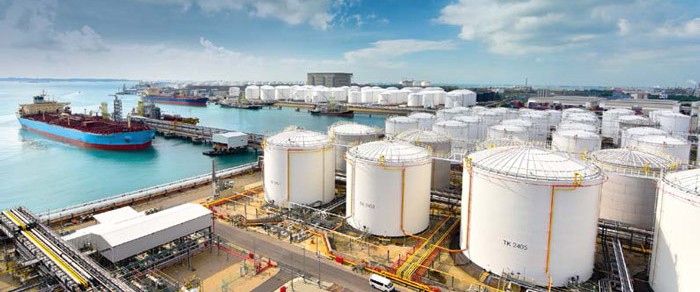Last year, TotalEnergies (NYSE:TTE) and Africa Oil (OTCPK:AOIFF) announced they had abandoned the multi-billion dollar South Lokichar project in Kenya, leaving British exploration firm Tullow Oil (OTCPK:TUWLF) (OTCPK:TUWOY) as the oilfield’s sole owner following a multiyear effort to get development off the ground. The two partners held a 25% stake apiece in the Lokichar field but withdrew after an unsuccessful drawn-out process to find a fourth partner. The long-delayed project aims to tap 460M barrels of oil in multiple fields in a remote part of Kenya, exporting 130K bbl/day via an 895-km pipeline to a terminal in Lamu port. And now that decision has come back to bite Tullow after the Kenyan government rejected the company’s field development plan (FDP) citing the company’s weak financial position.
According to Kenya’s Ministry of Energy and Petroleum, Tullow’s latest FDA failed to demonstrate how it would plug the financial gap given its limited asset value relative to the billions of shillings required to fully commercialize the oil reserves. The ministry also pointed out the technical deficiencies of Tullow following last year’s withdrawal of the two oil giant.
“There were issues in the FDP, given the book value of Tullow’s assets and the huge investment needed to fully unlock the project, Tullow failed to show us how it will raise this money,” Energy minister Davis Chirchir said in an interview.
Tullow Oil saw its profits deteriorate considerably in the last financial year (ending September 2023). Adjusted EBITDA fell 20% Y/Y to $1.2B; free cash flow fell to $170 million from $267 million in FY 22, while the company recorded a net loss of $110 million compared to a profit of $49 million in 2022. That’s not encouraging, considering that Tullow needs at least $3.7B to commercialize its Kenyan project fully.
Related: Russia’s Novatek Slashes Gas Output at Sanctioned Arctic LNG 2
On a more positive note, the company pumped 62,700 boepd in 2023 compared to 61,100 boepd in 2,022, while net debt fell to $1.6 billion from $1.9 billion in the previous year.
Back in March, Tullow announced it had written off $17.9 million worth of its Kenyan assets on the uncertainty over their sale to a strategic investor and commercial exploitation of the Turkana oil deposits. That was the first impairment the company has done since 2020 and reflects an increasingly pessimistic position on the ability of the Turkana project to proceed to commercial production. The company was hopeful that it would be able to write back all the impairments, which include a sum of $410 million written off in 2020, if its latest FDP was accepted by the Kenyan government. Unfortunately, the rejection of the FDP means the company will be forced to write off the entire $242.2 million book value. Tullow has been posting negative book value over the past four years with 2023 book value clocking in at -$359.4M. A negative book value means that a company’s liabilities are greater than its assets, implying the company is possibly insolvent.
Commercially viable oil reserves in Turkana in North Kenya were discovered in 2012. Unfortunately, a mix of commercial, political, technical and environmental challenges have set the project back at least four years behind its original schedule. Failure to secure a fourth partner as well as the exit of Tullow’s key partners puts the project further in doubt.
But it’s not all doom and gloom. The company’s management remains upbeat about its Kenyan bet, with Tullow Kenya BV managing director Madhan Srinivasan saying, “The process has gained momentum in recent weeks, and we have received what we consider to be encouraging review feedback from the regulator seeking some standard updates. Having acknowledged the regulatory feedback, we are working to update some of the areas identified to ensure a fine-tuned FDP. At the same time, as the fine-tuning process advances, the FDP review period has been extended for a further six months.”
Back in April, Tullow provided estimates that Kenya will become an oil exporter from 2028. Further, the country’s reserves have been upgraded after an audit by British petroleum consulting firm Gaffney, Cline & Associates led Tullow to revise the production capacity of the Turkana oilfields to 120,000 barrels of oil per day (bopd), up from previous estimates of 70,000 bopd. Tullow is currently hunting for a strategic investor to provide funds that are needed to unlock the Turkana oil project, hoping that the government will finally approve the updated FDP. Further, the government is yet to formally approve the withdrawal by Total and Africa Oil.
However, Kenya is a no-brainer for Tullow, with the projected output from the Turkana fields more than double the company’s entire production.
By Alex Kimani for Oilprice.com
More Top Reads From Oilprice.com:
Neither Israel Nor Hezbollah Want All-Out War
Gas Prices Tick Higher As Oil Prices Fail To Gain Momentum
Houthis Showcase Drone Boat as Another Merchant Ship Falls Victim
>>> Read full article>>>
Copyright for syndicated content belongs to the linked Source : OilPrice – https://oilprice.com/Latest-Energy-News/World-News/Kenyan-Government-Rejects-Tullow-Oils-Field-Plan.html










